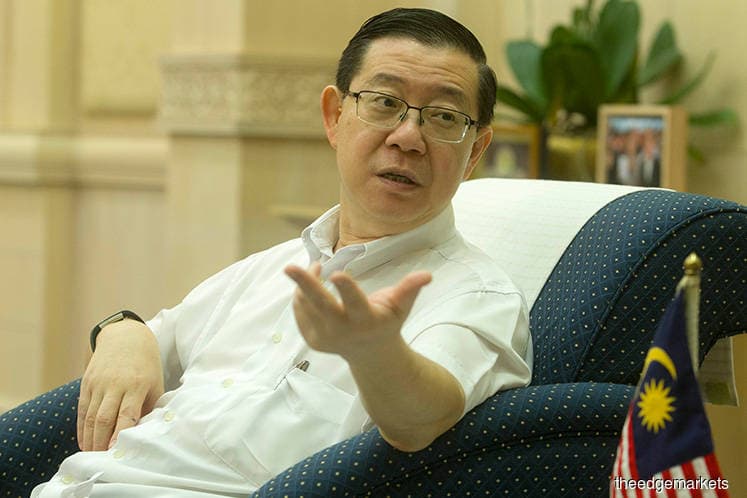
This article first appeared in The Edge Financial Daily on November 21, 2018
KUALA LUMPUR: Minister of Finance Lim Guan Eng has rubbished claims that rural development has been sidelined in Budget 2019 and asserted that the federal government’s commitment to the open tender system is not in conflict with its agenda to develop bumiputera entrepreneurs.
In a statement yesterday, Guan Eng said rural development is actually a main thrust of the government’s policies in Budget 2019 while the open tender system can bring huge savings as it lessens the federal government’s spending, which will help trim its debt and fiscal deficit.
He clarified that the difference between the RM9.5 billion set aside for the ministry of rural and regional development for 2018, and the RM8.4 billion for 2019 for the ministry, which has been rebranded the ministry of rural development under the new government, is because agencies like Rubber Industry Smallholders Development Authority, Federal Land Consolidation and Rehabilitation Authority and the Department of Orang Asli Development that were previously under the ministry of rural and regional development have been moved to other ministries.
“Other agencies involved in rural development have actually had an increase in their allocations. For example, Yayasan Peneraju Pendidikan Bumiputera, which was given RM90 million in 2018, was given RM210 million in 2019 ... Besides that, development allocation for Federal Land Development Authority was raised from RM160 million in 2018 to RM260 million in 2019 to fund road upgrading projects and the supply of water in Felda settlements,” said Guan Eng.
As for the perception that the allocation for Majlis Amanah Rakyat’s (Mara) operating expenditure has been reduced by RM2 billion to RM1.3 billion, he said this is because Mara’s scholarships and study loans amounting to RM2 billion have been classified as development spending instead, hence Mara’s total allocation remains at RM3.7 billion for 2019.
Meanwhile, he said the government will prioritise open tenders for procurements because direct negotiations and limited tenders practised by the past administration have resulted in high costs and financial irregularities that burden the country and its people.
“The open tender principle is not in conflict with the agenda to develop bumiputera entrepreneurs. What has been set aside for bumiputera entrepreneurs under the rural development agencies will remain, with the difference being the open tender system must be implemented among qualified bumiputera contractors too. It is no longer necessary to get a signature from a head of division [to bid for a project], nor will only certain crony bumiputera get it (projects),” he said.
He also gave an assurance that his ministry will ensure that at least 30% of the value of work each year be set aside for bumiputera contractors to bid for.
“This approach is in line with the wish to develop a sustainable and competitive commercial and industrial bumiputera community. Besides that, works valued below RM200,00 will remain specially for bumiputera contractor class G1 (previously known as class F) and will be executed by way of quotations.”
The government also remains committed to helping smallholders, farmers, and fishermen through targeted subsidies to avoid wastage and abuse of financial aid, he added.